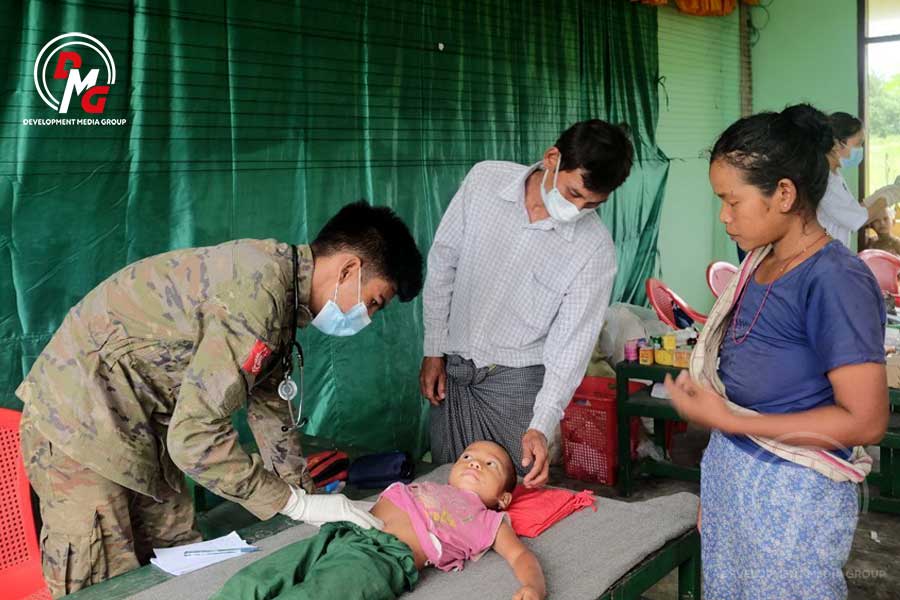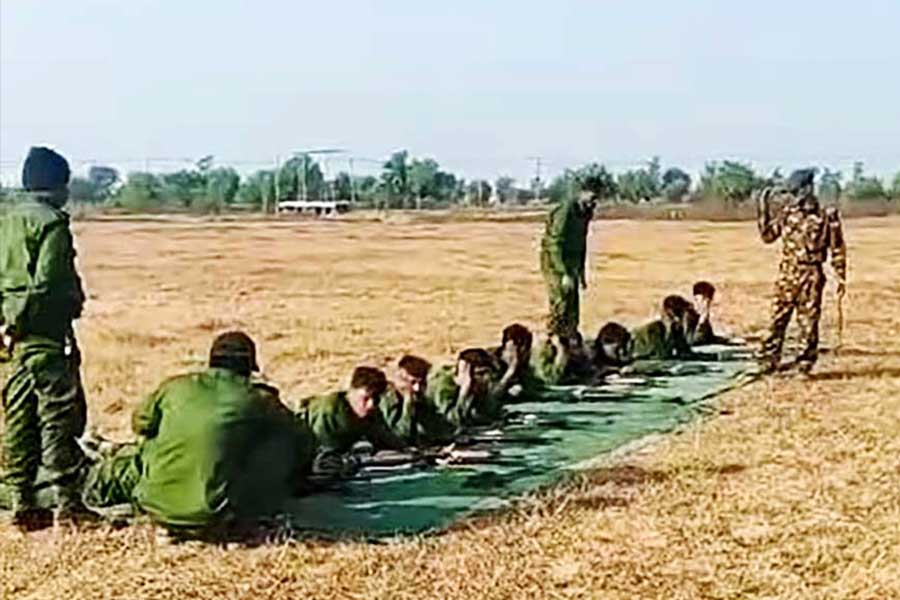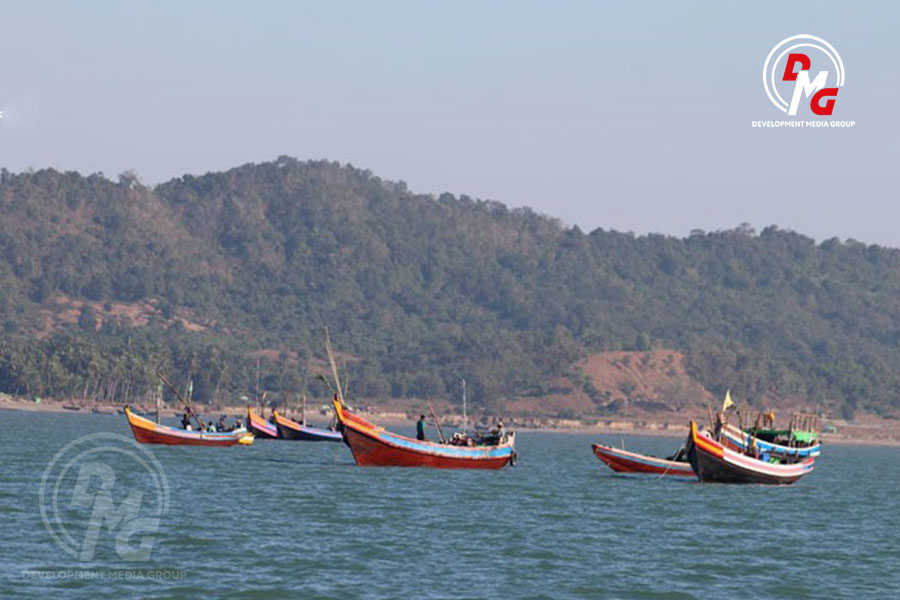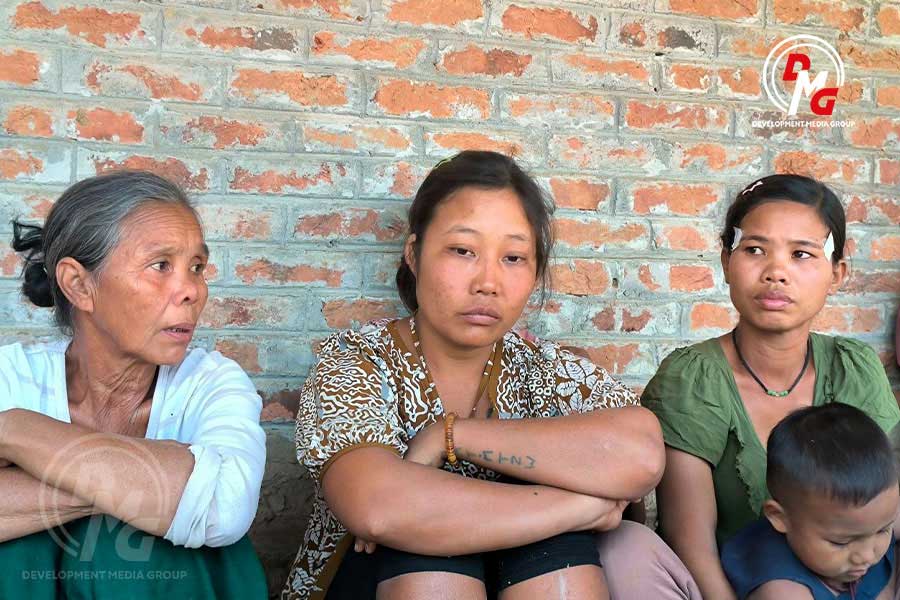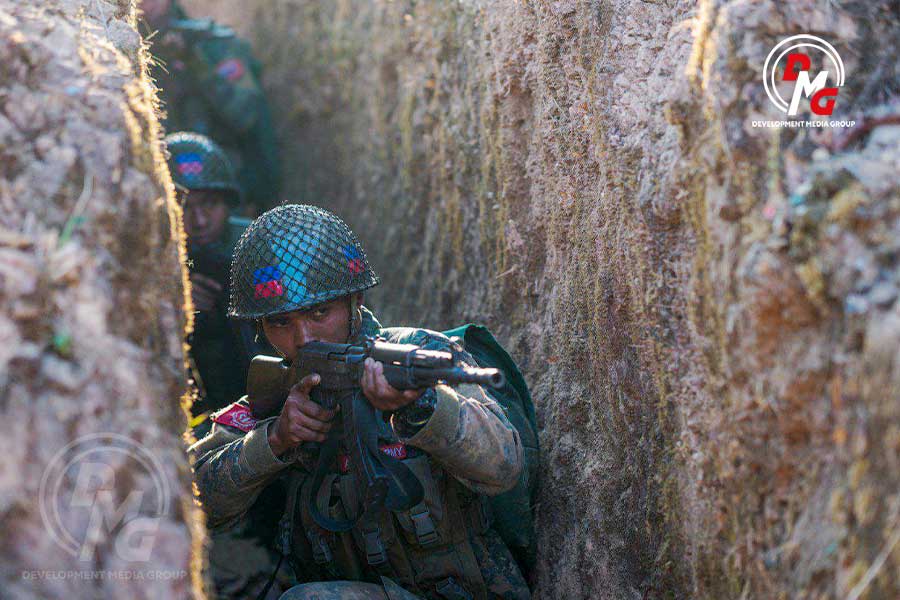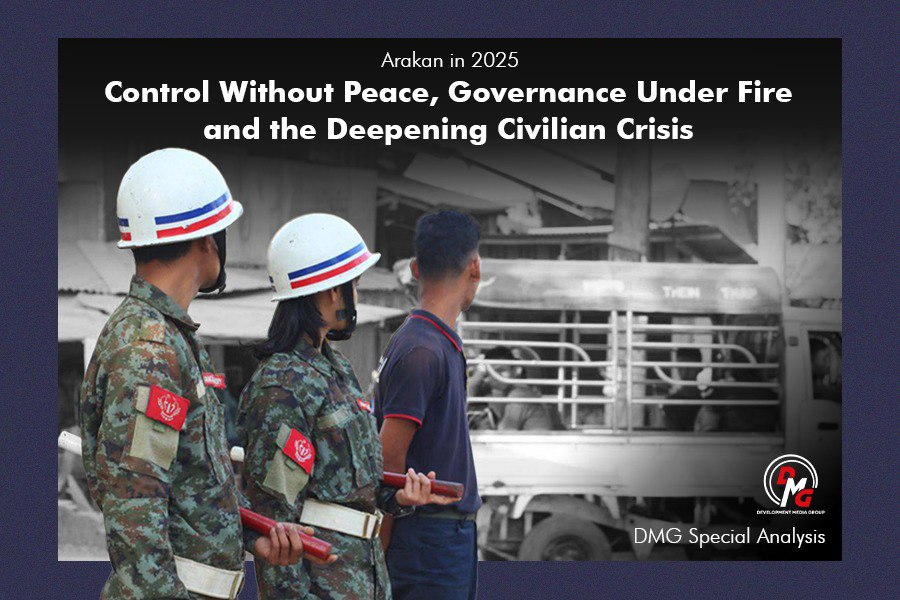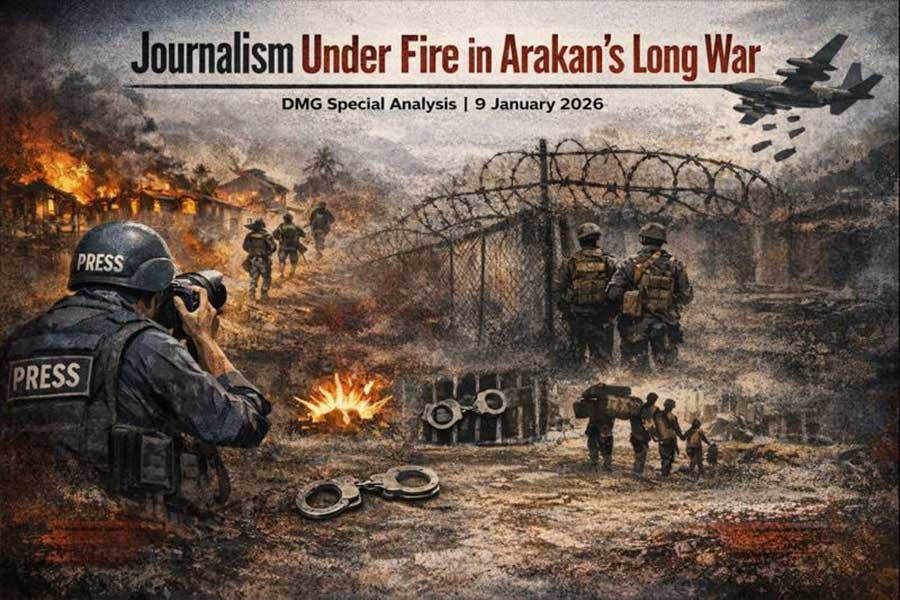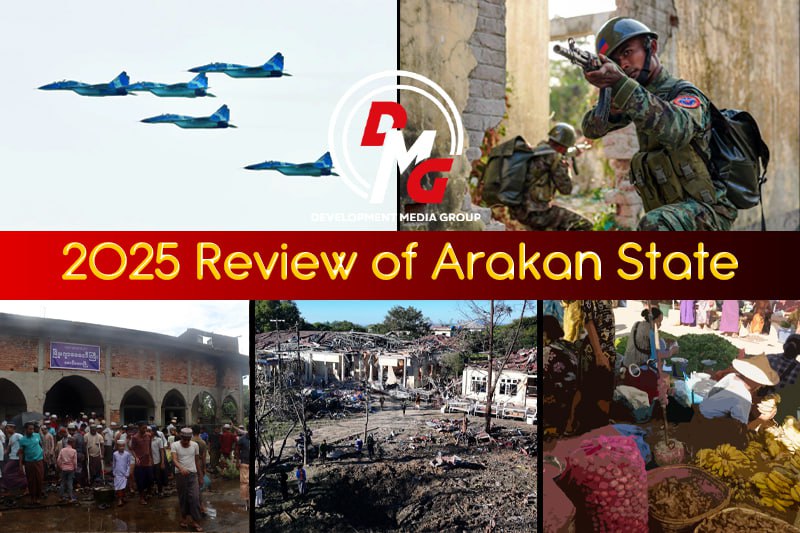- Children in Arakan State face rising cases of pneumonia and flu
- Muslim militiamen flee junta camps in Sittwe amid oppression, discrimination
- Junta navy activities halt fishing in Thandwe
- Junta airstrike kills 21 POWs, family members at Kyauktaw detention centre
- Arakan Army seeks to expand territorial control in Sittwe
Myanmar’s post-coup economic freefall hits impoverished Arakan harder than most
Last month, developers in Arakan State asked the state-level military council to help ease their difficulties. Construction companies are facing challenges such as price surges for building materials including cement and iron rods, and problems withdrawing money from banks.
13 Jun 2021
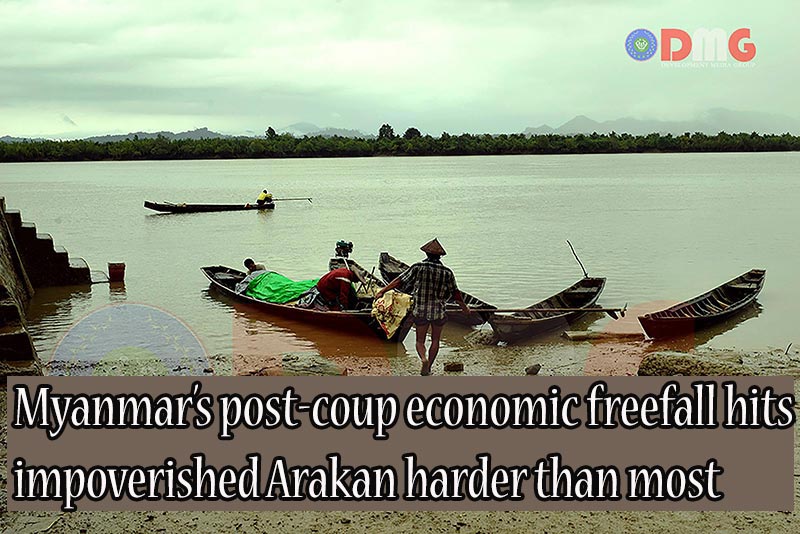
13 June 2021, DMG
More than four months after Myanmar’s military seized power in a February 1 coup, the Arakan State economy is contracting across nearly every sector.
The tourism industry, already badly battered by the COVID-19 pandemic, is on life-support with no real prospect for a change in fortunes any time soon. The banking system teeters on the edge of collapse. Small businesses suffer as incomes have fallen practically across the board. The construction sector is hobbled by an uncertain outlook and rising costs.
Last month, developers in Arakan State asked the state-level military council to help ease their difficulties. Construction companies are facing challenges such as price surges for building materials including cement and iron rods, and problems withdrawing money from banks.
As an example, Myanmar Construction Entrepreneurs Association member U Sein Aung said developers these days have to pay about K8 million more than normal expenditure for the purchase of approximately 30 tonnes of iron rods.
Developers who won tenders under the previous government are expected to hand over the buildings in September, when the financial year ends, but many cannot proceed with construction because in addition to the rising construction materials costs, they cannot readily withdraw money from banks.
The All Arakanese Solidarity Committee released a statement last month urging Arakanese entrepreneurs and businesspeople to invest in local agriculture and food manufacturing because consumers in Arakan State depend on foodstuffs and consumer goods sourced from other parts of Myanmar or imported from abroad.
Neglect of Arakan State’s people, infrastructure and education system by successive governments has exacerbated the economic precarity of the moment.
U Khin Maung Gyi, managing director and vice president of the Rakhine Economic Initiative Public Company, said per capita incomes are falling; a particular concern because Arakan State was already one of the poorest states in Myanmar.
“An individual’s income decreases by at least 50% at the moment,” he said.
Meanwhile, the price of commodities has been increasing, in part due to the cash crisis at Myanmar’s banks and instability of the exchange rate against the dollar, U Khin Maung Gyi said.
Civil society organisations believe that the military council considers Arakan State to be its best opportunity to exert control over the economy and other areas of governance, given that local opposition to the coup and participation in the Civil Disobedience Movement (CDM) are relatively low compared with the rest of the country. What’s more, an informal ceasefire between the Tatmadaw and Arakan Army has held strong since November, bringing a level of peace to Arakan State not seen in more than two years.
Members of the military council thus want to show that the junta government is taking better care of Arakan State than the previous government did, the thinking goes.
One thing is certain: There are plenty of opportunities to show this, and no shortage of need in Arakan State.
U Khin Maung Gyi noted that farmers might also face difficulties farming this monsoon season because Myanmar depends on some agricultural inputs imported from abroad, such as fertilisers.
There are about 1.5 million acres of farmland in Arakan State, but farmers can grow paddy on only some 1 million acres, he added.
“Growing paddy is the main business of Arakan State. If farmers cannot grow paddy on all the farmland this year, then the markets that depend on the farmers will be affected,” he said.
DMG phoned U Hla Thein, spokesperson for the Arakan State military council, seeking comment on how the council planned to address the struggles of IDPs, farmers, businesspeople and average folk in Arakan State, but attempts to contact him were unsuccessful.




